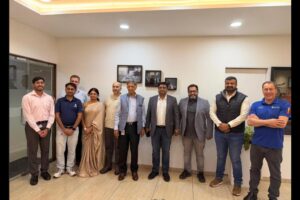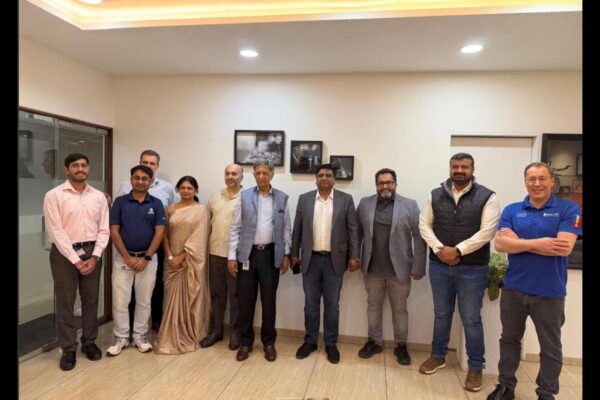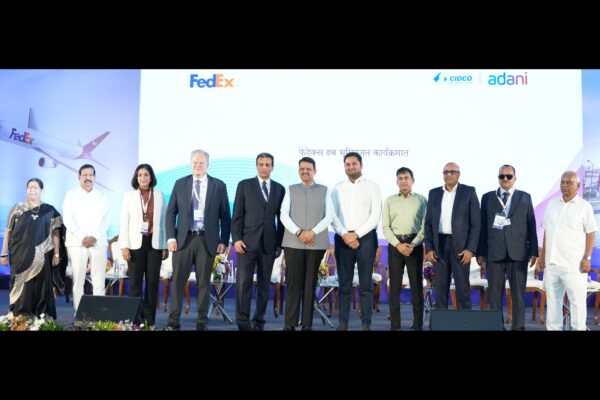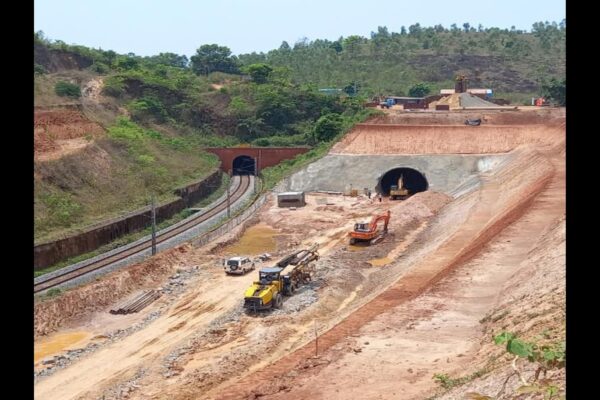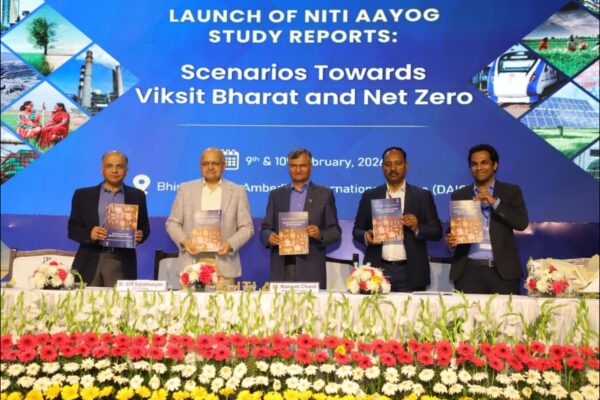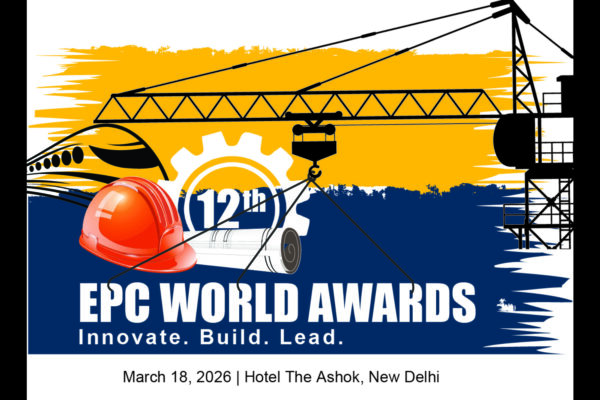Interaction: Sandeep Gulati, Managing Director – India & South Asia at Egis
Redefining Infrastructure Consulting in India
In conversation with EPC World, Sandeep Gulati, discusses the evolution of engineering consultancy from conventional roles to strategic nation-building. He shares insights on technology adoption, sustainable design, and Egis’ role in shaping iconic infrastructure projects across India, while highlighting the sectors set to drive the next wave of growth.
Your firm has been an integral part of India’s infrastructure journey. Can you share your perspective on how the consulting segment has evolved over the past decade?
In the last decade, India’s engineering consulting business has experienced a deep and strategic shift, in line with the country’s aspirational development agenda and evolving socio-economic realities. On the back of fastest-in-the-world urbanization, infrastructure upgradation, sustainability needs, and digital transformation, no longer is the industry transactional but has transformed to be a nation-building strategic partner.
We have been proud to witness and actively participate in this transformation. While earlier days were confined mainly to conventional engineering, procurement, and construction consultancy, nowadays our services as consultants go far beyond design and supervision—we deliver end-to-end management of the project lifecycle from feasibility studies, stakeholder consultations, and ESG studies to risk mitigation, digital integration, and capacity building. Perhaps the biggest change has been the mainstreaming of sustainability, resilience, and inclusiveness in infrastructure development. Be it national missions such as Jal Jeevan Mission, Smart Cities, AMRUT, or Gati Shakti, not only does one need to provide physical infrastructure, but one is now expected to develop systems that are climate-resilient, future-proofed, and socially relevant. We integrate climate adaptation, social equity, and long-term performance of assets into the very fabric of our consulting practice.
The rise of technology has been a game changer. The adoption of digital twins, BIM, and cloud-based monitoring platforms has shifted infrastructure development from reactive to predictive and data-led. These innovations have demonstrably improved project efficiency and oversight. Egis has been at the forefront of introducing these advancements across transport, water, and urban sectors in India, bringing global best practices to local implementation. We are also pleased to be at the vanguard of this change—delivering world-class, multi-disciplinary consulting expertise and innovative solutions across traditional sectors as well as new frontier areas. Our adherence to technical excellence, local knowledge, and global experience allows us to contribute to a connected, resilient, and sustainable future for India.
What role does your company play in shaping the ‘blueprint’ phase of major infrastructure projects, and how do you ensure that your consulting leads to on-ground breakthroughs — projects that are not only well-conceived but also executed with measurable impact? Could you share any landmark examples?
We play a pivotal and proactive role in shaping the ‘blueprint’ phase of major infrastructure projects by combining our technical expertise, strategic insights, and innovative solutions to create robust, sustainable plans that are tailored to the unique needs of each project. Our approach is deeply collaborative, working closely with stakeholders to ensure that the initial design and planning phases not only meet the project’s immediate goals but also comprehensively account for long-term sustainability, environmental impacts, and community well-being. We are involved right from the conceptual and feasibility phases—where strategy, sustainability, and stakeholder alignment converge to formulate robust infrastructure plans that address real-world requirements. We introduce a systems-based, multi-disciplinary way of thinking, blending civil, structural, environmental, and digital engineering with urban planning, economics, and social understanding. This ensures a holistic and integrated foundation for every project.
Utilizing tools such as BIM, Digital Twins, and GIS-based planning, we make sure the blueprint is technically correct and aligned with long-term socio-economic and environmental objectives. We focus on lifecycle thinking for long-term performance, early stakeholder involvement for higher relevance, and measurable impact through digital monitoring to monitor effectiveness and sustainability. Some of the significant projects we have worked on include:
- Mumbai Coastal Road Project: As PMC for Package II, Egis ensured seamless coordination, coastal risk, and traffic decongestion planning, leading to optimized construction timelines and enhanced urban connectivity.
- India’s First Underwater Metro Tunnel, Kolkata: A testament of sophisticated engineering and visionary thinking, demonstrating our excellence in high-risk urban transportation infrastructure, providing safe, efficient, and innovative transit for millions.
- Lucknow Airport Terminal 3: We provided turnkey project management—from geotechnical investigations to design and delivery—providing on-time, sustainable infrastructure that balances capacity with beauty and significantly enhancing passenger capacity and operational efficiency.
- Swachh Bharat (Grameen), Rajasthan: Empowering over 10,000 villages towards ODF+ by converting policy into practice through participative planning. Major outcomes
- Construction of individual household toilets and community toilets in rural areas, ensuring access to sanitation facilities.
- Strengthened solid waste management systems with a focus on waste segregation, collection, and processing, reducing landfill dependency.
- Decreased contamination of water bodies and soil through proper waste disposal and sanitation, promoting a cleaner, healthier environment.
How is your organization integrating sustainability and environmental considerations into project consulting?
Sustainability and environmental considerations are at the core of our project consulting approach. We are driven by the goal of shaping a sustainable future, with a bold commitment to achieving carbon neutrality by 2050. We understand that infrastructure development must not only meet today’s needs but also ensure a resilient, thriving future for communities and ecosystems. Our commitment to sustainability is reflected in every stage of the project lifecycle, from planning and design to execution and operation. Our strategic vision, “Impact the Future”, reflects our commitment to applying innovation and expertise in service of communities across the globe delivering tangible solutions that combat climate change, enhance quality of life, and ensure seamless connectivity.
Our commitment to sustainability is deeply embedded in every stage of the project lifecycle, from initial planning and design to execution and operation. In collaboration with our clients, we proactively address climate challenges by minimizing carbon emissions and embedding sustainability into every stage of our projects. This involves utilizing specialized sustainability assessment frameworks, conducting detailed lifecycle analyses, and embedding ESG (Environmental, Social, Governance) considerations from the initial concept phase. Our mission is to create a more resilient, inclusive world—where transportation is smoother, cities and buildings are greener, and public spaces are designed for all. As a responsible engineering partner, we place people at the core of everything we build, integrating social equity assessments and community engagement directly into our project designs, always mindful that the choices we make today will shape the lives of future generations. We are dedicated to making sure that all our projects are aligned with the objectives of the ecological and energy transition, as well as maintaining the highest environmental and social standards.
To effectively combat climate change and biodiversity loss , Egis provides a complete range of engineering services and operational solutions. We actively encourage the use of innovative low-carbon alternatives that provide equivalent — and often superior — performance in terms of schedule and budget compared to traditional approaches, frequently leading to demonstrable reductions in carbon footprint. Our experts are leading the way in creating and implementing innovative, low-carbon technologies, including:
- Eco-designed materials
- Positive-energy building envelopes
- Construction waste recycling solutions
We also strongly advocate for and support nature-based solutions, including the restoration of natural habitats like forests and mangroves, and the boosting of carbon storage in soils, These are core strategies in halting biodiversity loss and meeting climate objectives We achieve this by merging our deep technical expertise with environmental stewardship to assist in creating a future which is resilient, inclusive, and climate positive.
How is technology (such as BIM, GIS, AI, or digital twins) changing the way infrastructure consulting is approached in India?
Technology is transforming the very way we approach infrastructure consulting in India, moving beyond traditional methodologies to a more integrated, data-driven, and predictive approach. Digital technologies such as BIM (Building Information Modelling), GIS, AI, and Digital Twins are not overlays; they are the very core of how we design, plan, and operate infrastructure in the fast-changing environment today.
BIM allows us to create intelligent, collaborative 3D that serve as a single source of truth across all disciplines. This improves inter-disciplinary collaboration, minimizes design clashes, and streamlines construction sequencing. We facilitate outcomes visualization early on in the ‘blueprint’ phase, preventing costly errors and delays before the physical work even begins. Egis is promoting a change from reactive problem-solving to proactive, insight-based consulting.
In India, where the magnitude and speed of infrastructure need are intelligent execution, our technology-driven method ensures quicker delivery, improved quality, and sustainability over time.
What emerging sectors or opportunities do you foresee driving the next wave of infrastructure growth in India?
We foresee the next wave of infrastructure growth in India being driven by a diverse set of emerging sectors such as tourism, sports, and healthcare, aligning with India’s evolving infrastructure priorities.
Tourism is posted for significant infrastructure investment as a strong demand for integrated tourist facilities, improved connectivity and sustainable resort development arise. For instance, Egis is providing Project Management and Development Consultancy (PDMC) services to the Mizoram Tourism Development Authority, drawing on its global expertise to enhance the region’s tourism potential through strategic infrastructure planning and implementation, creating a holistic tourism ecosystem.
The Sports sector is another rapidly emerging opportunity, fuelled by India’s increasing global sporting ambitions and its drive to host major international event. In India, Egis marked a significant milestone with our involvement in the development of the Birsa Munda International Hockey Stadium in Rourkela, Odisha—the host venue for the FIH Men’s Hockey World Cup 2023. As Programme Management Consultant (PgMC) for IDCO, Egis played a pivotal role in the successful delivery of India’s largest hockey stadium with a 20,000-seat capacity. Additionally, we have provided supervision and monitoring services for several key sports infrastructure projects across Odisha, including the iconic Kalinga Stadium, further establishing our credentials in this high-impact sector.
Looking ahead, how is your organization preparing for the next decade of challenges and possibilities in the EPC and infrastructure landscape?
As Egis looks ahead to the next decade, we are proud to be an active partner in advancing India’s infrastructure ambitions. With decades of multidisciplinary expertise across transportation, water, energy, and urban development, we are uniquely positioned to support national and state-level initiatives through innovative, future-ready engineering and consulting solutions. Our focus extends across the entire project lifecycle—from design and planning to execution and long-term sustainability—ensuring infrastructure that is not only robust but also inclusive and environmentally conscious.
As India charts an ambitious course toward becoming a global infrastructure leader, the contribution of firms like Egis will be more critical than ever. We are committed to fostering strategic collaborations, driving digital innovation, and embedding sustainability at the heart of every project. The next 8 to 10 years represent a pivotal phase in the country’s growth story, demanding solutions that are not just robust but also adaptive and foresightful. Egis is fully prepared to support and accelerate this transformative journey, turning challenges into opportunities for sustainable and intelligent infrastructure development across the nation.
Tags


